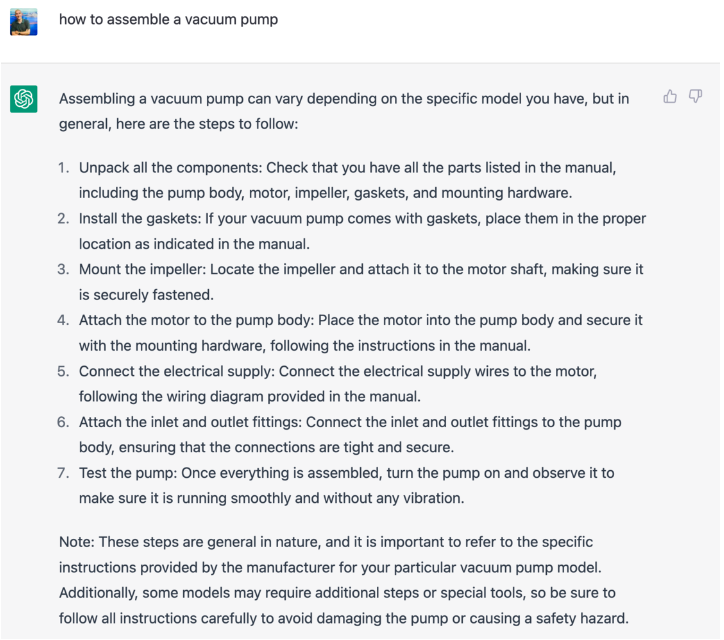While 89% of companies see Generative AI (GenAI) technology as an efficient way to differentiate themselves, your technical writing team may have another opinion. As AI becomes more prevalent across industries, some fear it will quickly take over content production in technical writing. But will AI replace technical writers? Keep reading to discover our perspective on this question with expert insights from Fluid Topics’ Head of Product Knowledge, Rémi Bove.
Understanding the Role of AI in
Technical Writing
While the capabilities of AI systems and applications are rapidly evolving, this technology remains limited in its scope of work for technical writing. In reality, the rise of AI presents a unique opportunity for tech writers if they are prepared to take advantage of it.
The Evolution of Technical Writers
The history of tech writers is relatively recent in our past. After the rise of industrialization in the 19th century, new electrical products for private homes emerged, like refrigerators and radios. However, the profession of technical writers wasn’t established until after the launch of mass production in the 1950s and 1960s. At this point, it became clear that large numbers of consumers needed instruction manuals.
Since the 21st century, writers have increasingly tailored their instructions to the needs of users with clear details. Today, documentation must also be available online, in multiple languages, and across a company’s digital channels and platforms. Moreover, writing methods have evolved with the rise of XML-based authoring tools and the need for docs as code for software development processes and tools.
So, tech writers have always evolved with technology and the needs of users. With the rise of AI, the role will shift again to meet new expectations and optimize how writing teams can deliver user-centered, accessible documentation. The key is to optimize use of this technology to stay ahead of other tech writers.

Current Capabilities of AI in Technical Writing
According to Rémi, “Technical writers can significantly benefit from AI technology to improve their workflows, boost efficiency, and generate top-notch content.” Tools like Acrolinx help technical writers check and improve their texts by proactively suggesting edits to clarity, tone, consistency, correctness, and terminology. Teams may also use GenAI tools to curate text for technical writers, but these drafts need to be reviewed by human experts.
Rémi explains that in the Fluid Topics Product Knowledge team, “we use AI to align content produced by Subject Matter Experts with our writing style guide. This streamlines the proofreading process and accelerates the delivery of production-ready content. As a result, we maintain consistent quality and tone across documents authored by various contributors.”
The Synergy Between AI and Technical Writers
Looking at the core of our question we find that AI and technical documentation writers aren’t enemies. They can have a mutually beneficial relationship:
- Technical writers: Their roles will evolve to include managing AI strategies. This will encompass gathering content into a consolidated repository for Retrieval Augmented Generation or RAG-enabled applications while applying the latest security and governance best practices. In terms of writing, their efforts to train AI will in turn allow the AI applications to become better editorial assistants.
- AI applications: As the applications use RAG to gain access to more company data, they are better able to understand the context and nuances of the tasks they will be asked to do. Therefore, they will develop increasingly accurate and relevant outputs for tech writers. In the meantime, AI can also run grammar checks and suggest style changes to harmonize technical writing.

Technical writers are well-positioned to evolve with AI by aligning their strategic roadmaps around this innovative technology. Their skills are more important than ever to provide AI with access to critical company data, ensure the applications are efficient, and prevent unnecessary risks.
To maintain this synergy, Rémi broke down how companies can help their writers evolve with this technology. “To harness the full potential of AI, companies should invest in training programs that enable technical writers to grasp fundamental AI concepts. Fostering a collaborative and innovative culture is equally important. Encouraging technical writers to work closely with AI developers, data scientists, and other stakeholders ensures that AI technology is used to its fullest potential.”
How AI Enhances Technical Writing
AI will quickly become a valuable tool for enhancing tech writer efficiency. Here are just a few of the many AI applications for tech writing teams.
- Fast-tracking content production: AI helps tech writing and knowledge teams brainstorm ideas, summarize research and insights, and quickly prepare content outlines. With AI doing the preparation work, writers can focus on creating and producing.
- Translating at lower costs: Companies can supplement machine-assisted translation with GenAI-enabled translation for converting text into any language on-the-fly.
- Ensuring consistent content styles: GenAI tools can review tone, check for plagiarism, and simplify dense sections of text. From real-time suggestions to improve writing to checking grammar, AI will improve and streamline the writing process while making sure the result provides value to users.
As a result, productivity will rise, and writers will be able to focus on the more complex and creative parts of their jobs.

To maximize the results that tech writers can glean from AI, they must also cultivate new skills. Using their existing writing abilities, they should develop their prompt engineering to extract the best content possible from Generative AI applications that can make their work more efficient.

AI’s Role in Knowledge Management
AI automates the retrieval of information, leading to accelerated search and response times. This enhances knowledge discovery, helping users access the right information faster. Yet, AI needs the latest comprehensive information to be effective in knowledge management tasks. Without this the models are unlikely to provide reliable content. Enter technical writers: they are perfectly positioned to help optimize a company’s data strategy and knowledge organization methods — two essential elements to launch an AI strategy.
AI is only as good as the data that feeds it. This means that AI systems need accurate, detailed, and up-to-date information for optimal performance, and tech writers can provide that. As a result, AI optimizes knowledge management by providing a consistent and fast experience.
Addressing the Concerns: Will AI replace Technical Writers?
In short, no, AI will not replace technical writers. AI can only generate text based on existing content. It is not good enough to create specific documentation based on general information without being incorrect. It may be able to make writing look nice and consistent, but that doesn’t make the content true and valuable. We need human technical writers to provide specific, accurate, detailed documentation.

To our point, we clearly see in the example above that GenAI tools aren’t specific enough in their technical writing to provide value to users.

The risk of AI Hallucinations
Companies can’t rely on Large Language Models (LLMs) to train AI. The information is often outdated and unrelated to your specific product information. Without detailed company information GenAI tools extrapolate information to fill in the knowledge gaps. However, this produces realistic sounding yet incorrect statements, also known as AI hallucinations.
This is why RAG techniques are so useful for generating contextual, accurate outputs. Technical writers are needed to provide the product knowledge that these tools should retrieve. Without technical writers, AI would be unable to generate content with the level of precision and detail needed for accurate responses.
Addressing Security and Content Governance
Writers are furthermore necessary for ever-changing security concerns. As more and more companies turn to RAG-enabled GenAI solutions, leaking confidential information becomes a major concern. Technical writers check the data privacy policies of any new tools and ensure that generated answers are accurate and not hallucinations. Additionally, a company’s content management tools should incorporate governance measures around documentation metadata and access rights. A real human — not AI — is needed to determine which account types have access to which documents to ensure the company data are secure.
The Unique Value of Human Technical Writers
While AI faces challenges like hallucinations, grammatical issues, and a lack of detail, many people still worry about what the future holds. Yet there are several human qualities that a machine cannot replicate in technical writing.
Rémi elaborates on this explaining that “writing often necessitates collaboration with various stakeholders…[which] involves conducting effective interviews, holding stakeholder meetings, and ensuring all feedback is appropriately integrated into the final content.” He then continues, explaining why this poses a problem for AI models. “While AI can automate repetitive tasks, enhance content quality, and streamline various aspects of the technical writing process, it falls short in replicating the nuanced, context-sensitive, and highly specialized skills that experienced technical writers bring to their work.”
Giving an example of working on a user manual, Rémi states that “AI can check for surface-level errors like grammar and style. However, in-depth peer reviews often involve assessing the accuracy of content, logical flow, completeness, and overall coherence — areas where human insight and experience are essential. Thus, while AI is an effective tool for improving efficiency and maintaining consistency, the detailed scrutiny offered by seasoned technical writers remains necessary.”
Even for basic AI-generated text, tech writers need to draft prompts to get the outputs desired. AI regurgitates and reworks existing content, but humans are innovative and creative. By leaning into the strengths of humanity, technical writers will continue to have the upper hand against AI applications.
Conclusion: Will AI Replace Technical Writers?
If you were feeling worried that AI or ChatGPT is going to replace tech writers, hopefully this reassured you a bit. When used wisely, AI is a great tool to help writers enhance productivity so they can focus on complex writing. While this innovative technology won’t replace tech writers, they will need to develop new professional skills to navigate the changing landscape of the industry. Looking ahead, Rémi wished to leave tech writers with this wisdom. “Staying updated with AI advancements and industry trends is crucial. [Technical writers] can gain hands-on experience with AI tools by participating in personal or open-source projects. These projects should demonstrate their ability to integrate AI into the documentation process, highlighting their capability to enhance content using advanced technologies.”
Latest post







